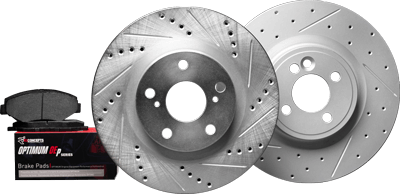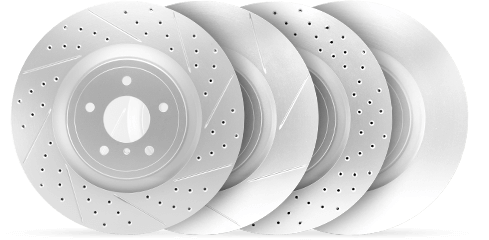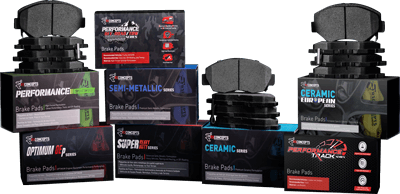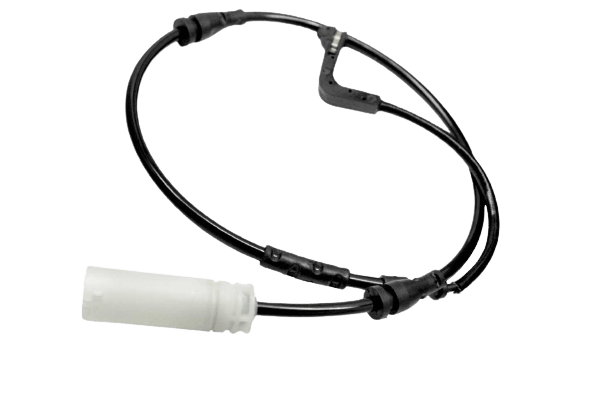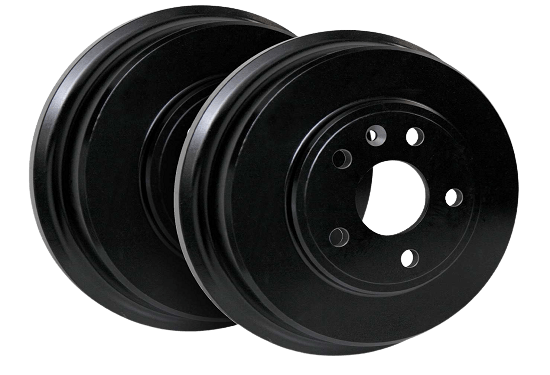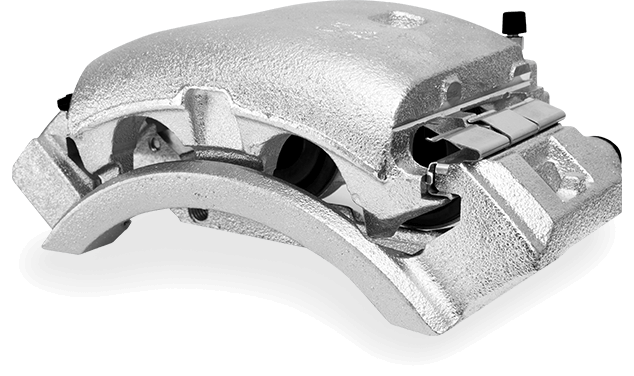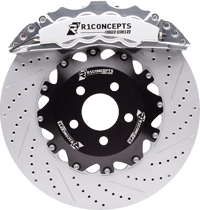
Winter weather brings unique challenges for drivers, from icy roads to freezing temperatures. Many wonder if they need special brakes to handle these conditions safely. While most vehicles are equipped with brakes that perform well year-round, extreme winter weather can necessitate additional preparation or specific brake components. In this post, we’ll explore how winter affects your brakes and provide tips to ensure optimal braking performance during the colder months, emphasizing the importance of anti-lock brakes [ABS] and the anti-lock braking system [ABS] in maintaining control during winter weather.
Understanding Winter Braking Challenges
Winter weather can significantly impact your vehicle’s braking system, leading to reduced performance and increased stopping distances. Cold temperatures can cause brake fluid to thicken, making it less effective. This can result in a sluggish response when you press the brake pedal, compromising your ability to stop quickly. Ice and snow can also accelerate the wear of brake pads, reducing their effectiveness over time. Additionally, the cold can cause brake rotors to warp or become damaged, further impairing your braking performance. Understanding these challenges is crucial to ensure safe braking in winter conditions.
How Winter Weather Affects Cold Weather Brake Problems
Winter weather can significantly impact the performance of your braking system. Here’s how:
- Reduced Friction: Ice, snow, and sleet reduce the friction between your tires and the road, making it harder for brakes to effectively stop the car.
- Increased Brake Use: Drivers tend to brake more frequently in winter to avoid skidding, which can lead to faster wear of brake pads and rotors.
- Cold Temperatures: Extreme cold can affect the brake system, including brake fluid and reduce its efficiency if not properly maintained.
Contaminants can adversely affect brake pads, leading to performance issues such as noises, reduced stopping power, and brake pads becoming frozen to the rotor.
Do You Need Special Brakes for Winter?
In most cases, you don’t need an entirely different set of brakes for winter. However, certain brake types and preparations can enhance safety and performance during cold-weather driving. Additionally, using snow tires is crucial for enhanced traction and braking performance on icy and snowy roads.
Ceramic Brake Pads
- Why They’re Good: Ceramic brake pads, like R1 CERAMIC Series Brake Pads, are excellent for regular driving in cold weather. They provide consistent performance and produce minimal dust, even in low temperatures. Additionally, ceramic brake pads can work well with the anti-lock braking system [ABS] to maintain control during winter driving by ensuring effective pressure modulation and preventing brake lock-up.
- When to Use: If you drive mostly in urban or highway settings and experience light to moderate winter conditions.
Drilled or Slotted Rotors
- Why They’re Good: Rotors like R1 GEO-Carbon Series Drilled & Slotted Brake Rotors help dissipate heat and prevent brake fade during extended use in wet or icy conditions.
- When to Use: For vehicles frequently used in extreme weather or long downhill stretches. Ensure that brake lights are functioning properly as part of overall vehicle safety checks before winter driving.
Mastering the Brake Pedal in Winter
Mastering the brake pedal is essential for safe winter driving. When navigating snowy or icy roads, it’s important to use gentle braking techniques to avoid skidding. Sudden braking can cause a loss of traction and control, leading to dangerous situations. Instead, gradually apply the brakes and avoid slamming on them. This approach helps maintain control and stability on slippery surfaces. Additionally, using engine braking—slowing down by shifting to a lower gear—can help keep your brakes from overheating and maintain better control of your vehicle.
Preventing Brake Freeze and Damage
Preventing brake freeze and damage is crucial for safe winter driving. Parking your car inside during the winter can significantly reduce the chances of your brakes freezing up. Keeping up with your car’s recommended brake service schedule is also important to prevent brake freeze. Regular maintenance inspections are critical for assessing the condition of the brake lines and identifying possible complications like fractures, perforations, and moisture penetration. Utilizing a car cover when parked overnight can shield the brakes and help avoid moisture-induced seizure as temperatures drop.
Winter Driving Tips for Optimal Braking
Even with the right brakes, winter driving requires extra precautions to ensure safety:
- Maintain Your Brakes
- Have your brakes inspected before winter to ensure pads, rotors, and fluid are in good condition.
- Replace worn components with high-quality options like R1 Concepts’ brake pads and rotors for reliable performance.
- Use Winter Tires
- Pair your brakes with winter tires to improve traction on icy roads. This reduces the strain on your brakes and enhances overall stopping power.
- Brake Gently
- Avoid slamming the brakes, which can cause skidding. Instead, apply consistent, gentle pressure to maintain control.
- Keep a Safe Distance
- Allow more space between your car and the vehicle ahead. Icy conditions require longer stopping distances.
- Check Brake Fluid
- Ensure your brake fluid is at the correct level and not contaminated, as cold temperatures can reduce its effectiveness.
- Address Frozen Car Brakes
- If your car brakes freeze, do not force them. Instead, gently warm the brakes using a hairdryer or by applying warm water to thaw them safely without causing damage.
Preparing Your Vehicle for Winter
Preparing your vehicle for winter is essential to ensure safe driving. Installing winter tires is just one part of the winterization process. Other steps include checking the battery, antifreeze, and windshield wipers, as well as ensuring proper tire pressure and tread depth. Winter tires are designed to provide better traction and control on snow and ice, making a significant difference in maintaining vehicle control and staying safe on the road. Additionally, checking the brake fluid level and condition is also important to ensure proper braking performance.
Common Cold Weather Brake Problems
Cold weather can cause a range of brake problems, including rust, pitting, and overheating. Rust can cause pitting on brake rotors, leading to reduced braking performance. Excessive rust on brake components can cause squealing or squeaking sounds when braking. Overheating of the braking system can cause reduced braking performance. Damaged brake lines can cause the brakes to “drag” or take longer to “let up.” Regular brake inspections can help prevent brake problems caused by cold weather, ensuring your braking system remains in top condition throughout the winter months.
When to Upgrade Your Brakes for Winter
Consider upgrading or replacing your brakes for winter if:
- You frequently drive in regions with extreme winter weather.
- Your current brakes are nearing the end of their lifespan.
- You experience reduced braking performance or unusual noises.
Upgrading the brake system is essential to maintain control during extreme winter weather.
R1 Concepts offers a wide range of brake pads and rotors designed to perform well in all weather conditions. Whether you choose ceramic for quiet, clean braking or semi-metallic for heavy-duty stopping power, high-quality components are crucial for safe winter driving.
Conclusion
While most vehicles don’t require special brakes for winter, upgrading to high-performance brake pads and rotors can enhance your safety in cold and icy conditions. High-quality brake pads and a well-functioning anti-lock braking system [ABS] are crucial for maintaining control and traction, especially in slippery conditions. Paired with proper maintenance and winter driving techniques, the right brakes can make all the difference when it comes to stopping power and control.
Explore R1 Concepts’ selection of brake pads and rotors to ensure your vehicle is ready to tackle the challenges of winter weather. Stay safe and confident on the road, no matter the season!


